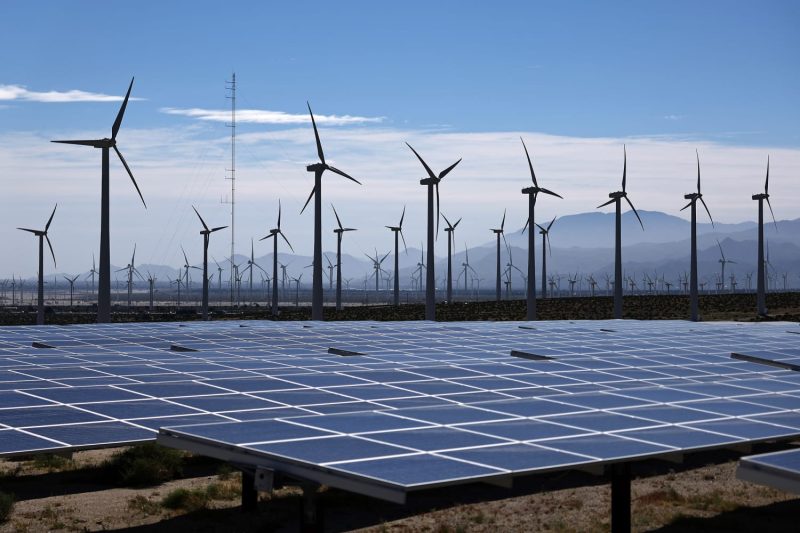
Powering Up: The Surge in Electricity Consumption Could Triple Demand for Renewable Energy
Renewable Energy Demand could Triple as Electricity Consumption Surges
The global demand for renewable energy is on the rise due to the surging electricity consumption worldwide. According to the International Energy Agency (IEA), the demand for renewable energy sources, such as wind, solar, and hydropower, could triple by the year 2040. This significant increase is attributed to several key factors driving the shift towards cleaner and more sustainable energy sources.
One of the primary reasons for the growing demand for renewable energy is the increasing electricity consumption in both developed and developing countries. As economies grow and urbanization rates rise, the need for electricity to power homes, businesses, and industries is escalating. This trend is expected to continue in the coming years, putting pressure on the existing energy infrastructure and necessitating the transition to cleaner and more efficient sources of power.
Another factor driving the surge in renewable energy demand is the growing awareness of the environmental impact of traditional fossil fuel-based energy sources. Climate change concerns, air pollution, and the finite nature of fossil fuels have spurred governments, businesses, and consumers to seek alternatives that are both sustainable and environmentally friendly. Renewable energy sources offer a solution to these issues by providing clean, renewable power that helps reduce carbon emissions and mitigate climate change.
Furthermore, technological advancements and cost reductions in renewable energy technologies have made them more competitive with traditional fossil fuels. The declining costs of solar panels, wind turbines, and energy storage systems have made renewable energy sources increasingly cost-effective and attractive for investors and energy consumers alike. As a result, more countries are investing in renewable energy infrastructure and setting ambitious targets for increasing the share of renewables in their energy mix.
In response to the growing demand for renewable energy, governments around the world are implementing policies and incentives to promote the adoption of clean energy sources. Renewable energy targets, feed-in tariffs, tax credits, and subsidies are some of the measures being employed to accelerate the transition to a low-carbon economy. By creating a supportive policy environment and incentivizing investment in renewable energy projects, governments can further drive the uptake of clean energy technologies and help meet sustainability goals.
In conclusion, the demand for renewable energy is poised to triple as electricity consumption surges in the coming years. With increasing awareness of environmental issues, technological advancements, and supportive government policies, renewable energy sources are becoming more prominent in the global energy landscape. By investing in clean energy infrastructure and transitioning towards a more sustainable energy system, countries can reduce their carbon footprint, enhance energy security, and build a more resilient and environmentally conscious future.
